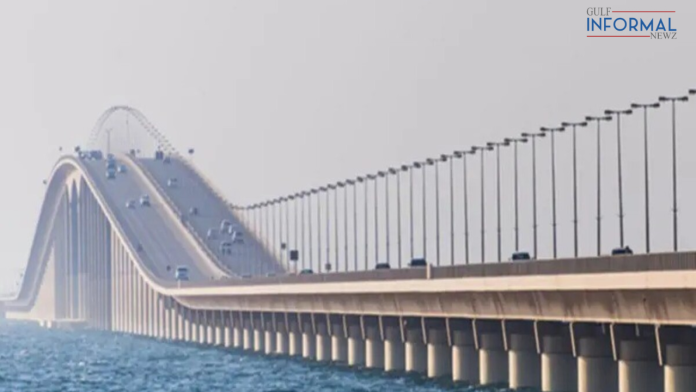The General Corporation for the King Fahd Causeway, the link between Saudi Arabia and the Kingdom of Bahrain, announced the increase in the capacity of the procedures areas and the development of passenger lounges for users of public transportation.
Saw the action area inking Fahd’s bridge Eastern Saudi Arabia and the link to the Kingdom of Bahrain, implementing projects to increase the capacity by 50%, where the paths and cabins were designed innovatively, taking into account the flow of movement and security and safety requirements.
This increase aims to raise the capacity of the procedures areas to about 2,500 vehicles per hour, in addition to developing the passenger lounge for public transportation users by creating comprehensive departure and arrival halls and re-engineering the operational procedures to be a single stopping point for travelers.
Governor of the Zakat, Tax and Customs Authority and Chairman of the Board of Directors King Fahd Causeway General Establishment Engineer Suhail bin Muhammad Abanmi, during the inauguration ceremony of the projects to develop the procedures area and the new passenger lounge at King Fahd Causeway, by the Governor of the Eastern Province, Prince Saud bin Naif, stressed the keenness of the King Fahd Causeway Corporation to develop the infrastructure and raise operational efficiency to ensure a distinctive experience for travelers. Across the bridge.
He added that the Corporation has launched a group of digital transformation projects, the most prominent of which is the electronic prepayment service for toll gates available around the clock, in addition to the automatic vehicle identification system without the need to stop.
He also pointed out that the corporation is constantly striving to keep pace with the increasing growth in the number of travelers by implementing projects aimed at increasing the capacity of the procedures area. A project has been implemented to increase the capacity by 50% on both sides, with an innovative design of tracks and cabins that takes into account the flow of movement and security and safety requirements.
He pointed out that increasing the number of cabins aims to raise the capacity of the procedures areas to about 2,500 vehicles per hour, in addition to developing passenger lounges for public transportation users, by creating comprehensive departure and arrival halls and re-engineering operational procedures to be a single stopping point for travelers.




